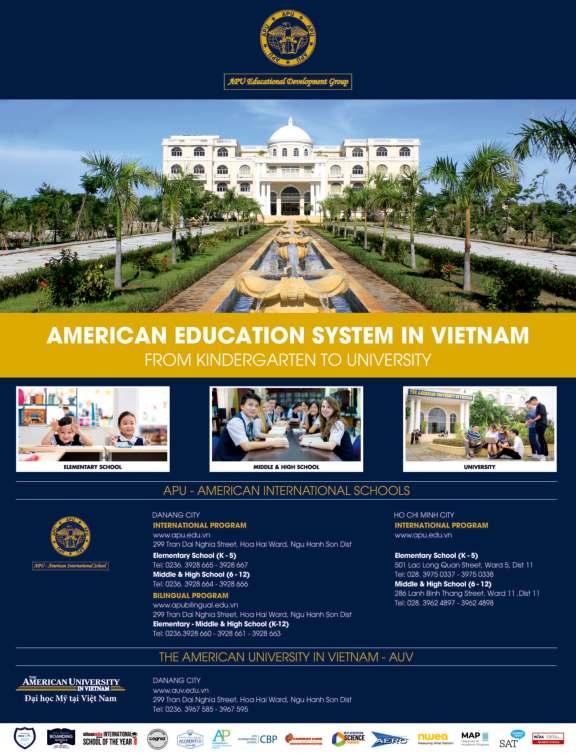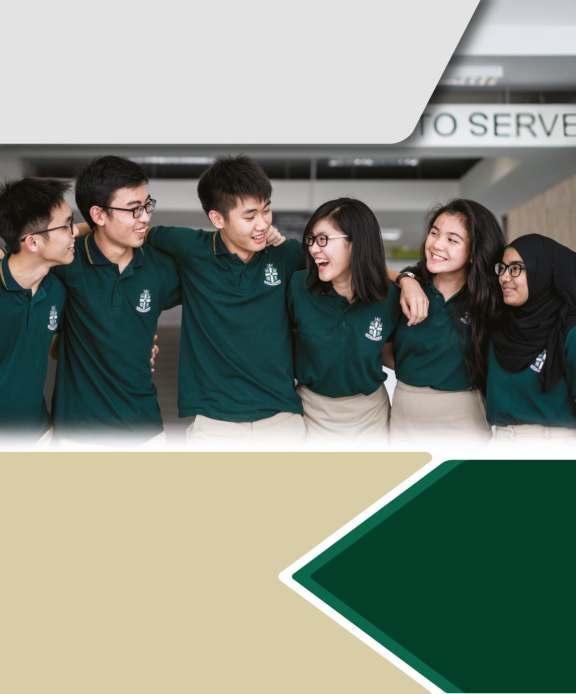








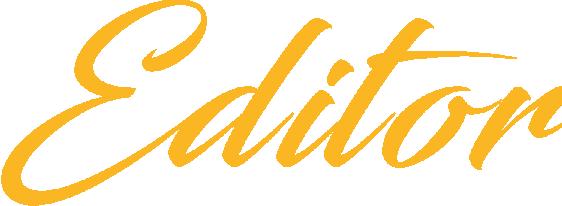


Fragrances! Most people remember their favorite perfume fragrances, but have you ever wondered where these perfumes get their marvellous odors?
The perfume producer utilizes several flower fragrances in their products, transforming the human being's mood.

However, where do the businesses get such a variety of flowers? There are many kinds of flowers in every country. However, among all the
others, the Netherlands is renowned for its wide selection of tulips, which have a delightful aroma that enhances human occurrence.
The country is renowned for its tulips as well as its windmills, canals, clogs, and numerous coffee shops, but how can it fill the lives of students with fragrance through education?
Before the changes in the environment, only a few institutions in the country had English language curricula. However, as their educational systems have evolved, many institutes now provide English-language curricula, which open the gate for international students to follow their academic dreams.
Currently, the nation is among the best in offering quality international education to students. Besides that, overseas students can afford education in the country, which also gives them access to various employment opportunities.
While searching for "The Most Renowned International Schools of Netherlands in 2022," we looked for the best institutions in the nation that offer the best education to international students. In addition to offering excellent education, these institutions also provide access to a wide range of
other services that help international students feel at home. The school and the students who studied there are very successful in their lives. They also have many opportunities to learn, which provides their careers a more prosperous odor.
We featured the top international schools in the country in The Knowledge Review magazine. We shared their inspiring tales, which will aid students in choosing the best school in the nation and provide a comprehensive overview of the country. Pupils can plan their subsequent education with helpful information about the nation and the institutions.
Enjoy


madhu.guleria@insightssuccess.com







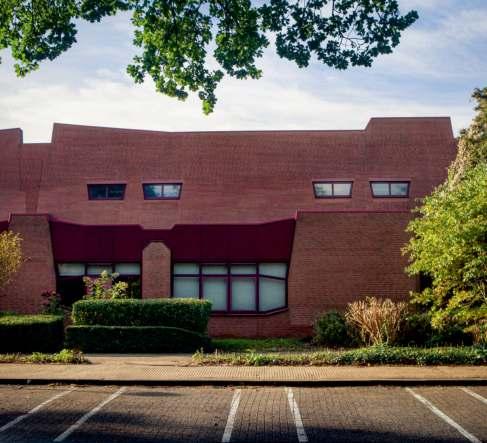
Editor-in-Chief
NOVEMBER, 2022
sales@theknowledgereview.com
theknowledgereview
theknowledgerv
Insights Success Media Tech LLC
555 Metro Place North, Suite 100, Dublin, OH 43017, United States
Phone - (614)-602-1754
Email: info@theknowledgereview.com
For Subscription: theknowledgereview.com
Senior Editor
Managing Editor
Assisting Editor
Visualiser
Art & Design Head
Co-designer
Digital Marketing Manager
SME-SMO Executives
Research Analyst
Circulation Manager
Business Development Manager
Marketing Manager
Business Development Executive
Technical Head
Assistant Technical Head
Technical Consultants
Copyright © 2022 Insights Success Media and Technology Pvt. Ltd., All rights reserved. The content and images used in this magazine should not be reproduced or transmitted in any form or by any means, electronic, mechanical, photocopying, recording or otherwise, without prior permission from Insights success.
Reprint rights remain solely with Insights Success Media and Technology Pvt. Ltd. The Knowledge Review is powered by Insights Success Media and Technology Pvt. Ltd.
URL

annavanrijn.nl
City of Life Christian Academy colca.education
Harbour International Primary School isa.nl
International School of Amsterdam
The school provides sufficient challenge at all levels. Within atheneum, havo and mavo one can choose between bilingual education or Dutch-language education. Gymnasium is only available in English. harbourinternational.nl
winford-bilingual.nl
City of Life Christian Academy is an th accredited PreK-12 grade school with the desire to come along side families to "raise up a child in the way he should go."
Harbour International is a primary school located in the centre of Rotterdam, a short walk from Central Station. The school was opened in 1987 and served international parents for years under the name Blijberg International.
ISA was the first school in the world to offer a complete International Baccalaureate curriculum from Pre-school to Grade 12. Today, ISA has close to 1,300 enrolled students, representing over 60 different nationalities who are dedicated to the mission 'To Educate for International Understanding'.
Winford Bilingual Primary School is a global school focused on the highest quality bilingual primary education.
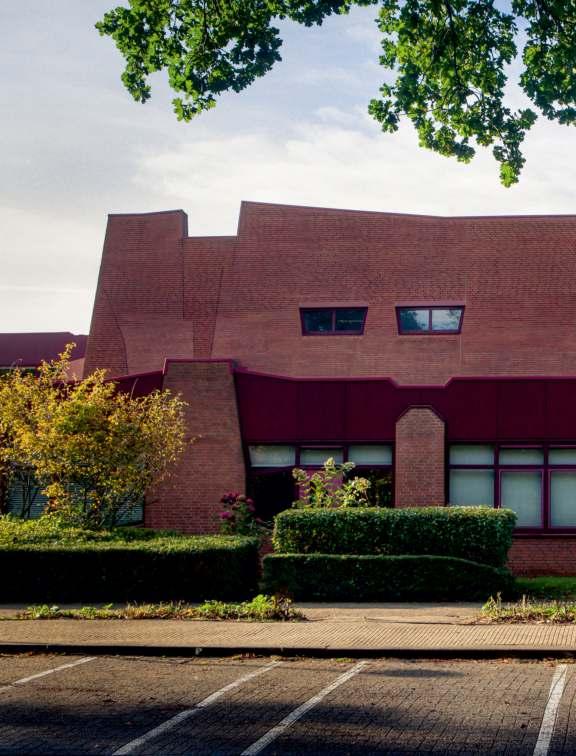


Tracing back to the roots of international education, one might find globalization at the foundational cornerstone of this development.
The unique story of the International School of Amsterdam shows us how a visionary idea can be brought to life. Established in the year 1964, the school has its foundation dating back even before the establishment of the
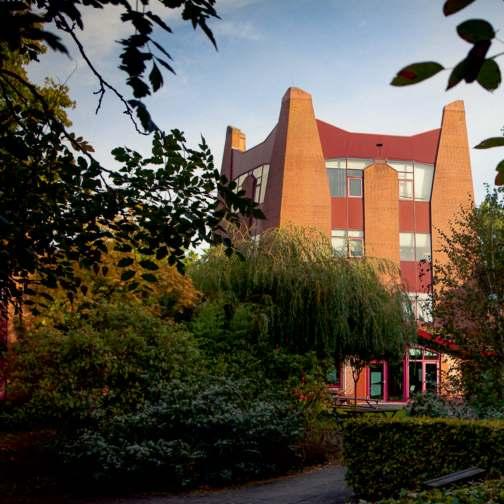

In our quest to curate 'The Most Renowned International Schools of the Netherlands in 2022' , we had the privilege to dive deep into the International School of Amsterdam. We also got to know Dr Bernadette Carmody , ISA Director , who has come from educational leadership environments in China (Shanghai and Guangzhou) Bahrain, Dubai,
Venezuela, Norway, Sri Lanka and Australia. Dr Bernadette Carmody has worked to preserve the school's heritage while implementing innovative practices to maintain the school as a trailblazer in future-focused education.
The Foundation of the International School of Amsterdam
The Dutch capital, Amsterdam, is a very different place today than it was

in the early 1960s. The Netherlands started to become a major attraction for the international community.
Catering to that need, the International School of Amsterdam was founded in collaboration with the city administration and the local business leaders to be the catalyst for internationalization. Soon after, ISA became the hub of international education for the residents
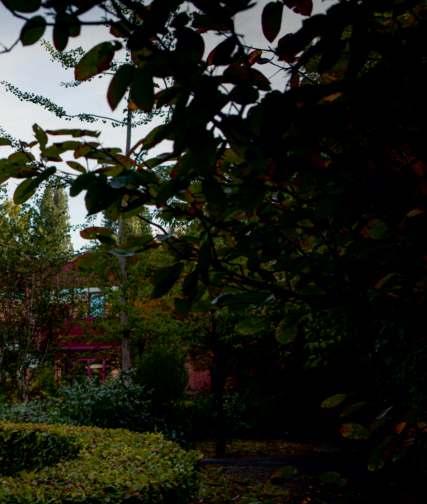
of the city of Amsterdam and neighbouring cities.

During the inaugural years of the International School of Amsterdam, it was clear to the city governance and the forerunners of the educational sector that the school was established with a focus on educating the international community. Making this their mission, over the last 58 years, ISA, along with the city of Amsterdam,
has emerged as a global leader in international life, learning and understanding.
The establishment of ISA opened up doors for international families to make their homes in a wonderful city, and in turn, the city of Amsterdam has itself proven the ideal home for a school dedicated to embracing diversity and international perspectives.

We offer the IB curriculum all the way from PreSchool to Grade 12. It is a progressive curriculum that places student agency and inquiry at the heart of all learning experiences. The IB’s philosophy and holis�c approach to educa�on have been at the very core of all learning at ISA for over 40 years.
To Educate for International Understanding
Today, more than 1300 students representing over 60 different countries from all over the globe are part of the ISA community.
Dr Bernade�e Carmody ISA DirectorISA’s mission is: "To Educate for International Understanding." As an independent, non-profit foundation, all efforts are focused on creating a vibrant, global community of lifelong learners. The international understanding was the reason for its foundation, and it is the reason the community still comes together every day.
Developing Minds
ISA challenges and supports students on their individual journeys to selfdiscovery. Inspiring and developing young minds is what teaching at ISA is about. There is power in curiosity, and they encourage students to ask questions – because good questioning leads to great learning.
Developing Character
ISA students develop an appreciation for individuals, cultures, and societies around the globe. They lead and participate in community service projects that develop character and the drive to make principle choices. At
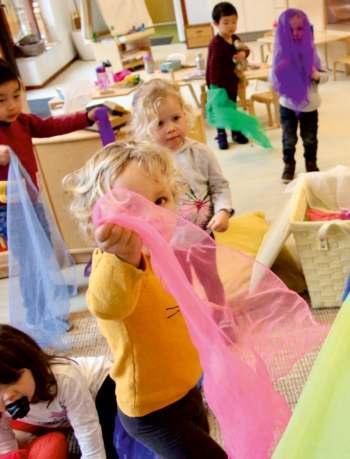
ISA, students are taught to push their boundaries and discover how rewarding that journey can be.
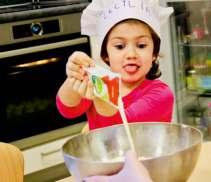
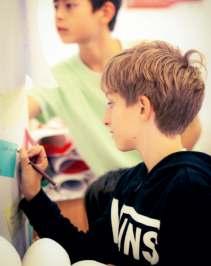
In the ISA community, cultures bridge through friendship, support, and curiosity. ISA’s commitment to reaching out to others is deeply embedded in the culture. When showing empathy, students reflect on their own views and appreciate the perspectives of others.
After four years of independently
curating its curriculum, ISA adopted The International Baccalaureate — an international education foundation dedicated to creating a better and more peaceful world, — putting into practice its vision of holistic intercultural understanding and canalised an international curriculum that will inspire students to become lifelong learners.
Interestingly, the International School of Amsterdam was the first school in the world to offer a complete IB continuum. "We offer the IB curriculum all the way from PreSchool to Grade 12. It is a progressive
curriculum that places student agency and inquiry at the heart of all learning experiences. The IB’s philosophy and holistic approach to education have been at the very core of all learning at ISA for over 40 years," says Dr Bernadette Carmody, ISA Director.
The International School of Amsterdam is unique in many ways. Where most institutes or schools focus heavily on the academic part, the International School of Amsterdam focuses on building its entire school culture on a vision where core
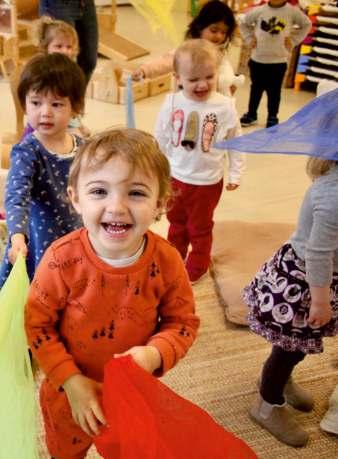
elements of holistic development are instilled.
Ÿ
For almost 20 years, ISA has collaborated closely with the Harvard Graduate School of Education's Project Zero and its Visible Thinking Network .
Through this, the school aims to develop a culture of thinking which
cultivate students’ thinking skills and learning dispositions in ways that lead to greater self-awareness, genuine open-mindedness, and deeper content learning.
Ÿ Academic Excellence
Although a narrow focus on academia alone is not ISA's driving vision, their grade 11 and 12 students have achieved excellent results in their IB Diploma courses each year. Over the past years, ISA
IB Diploma students have consistently passed their examinations and ISA’s average grade is 5.6, higher than the world average of 5.0.
Ÿ Athletics Excellence
ISA is a member of the Northwest European Council of International School (NECIS). Consisting of 11 international schools from the North-Western European region, the schools aim to build true
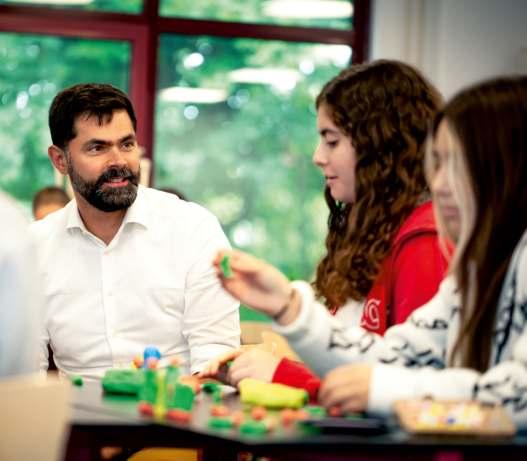
sportsmanship and athleticism through active participation.
Ÿ Extra-curricular Engagement
Offering a rich programme of extracurricular activities, the school aims to offer its students a diverse learning experience to amplify their important social development. Activities range from fine arts, sports, music academy and language academy.
Ÿ Character Development
Through innovation, and with an open-minded approach, ISA challenges the community to learn for life and learn with purpose. Students are inspired to be resilient, respectful global citizens and encouraged to find their individual paths to personal success.
Ÿ Facilities
One-campus, purposefully built to facilitate learning. Located in the
city of Amstelveen, ISA's green and spacious campus includes many state-of-the-art facilities:
Ÿ Early Childhood-devoted Facilities
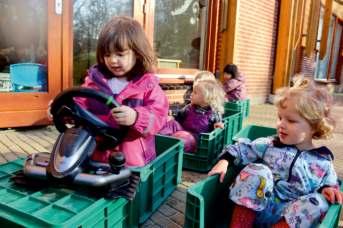
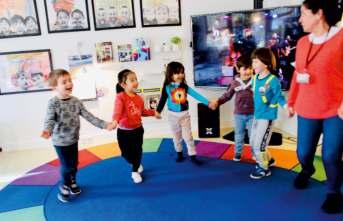
2
Ÿ 144m Theatre
Ÿ 3 Gymnasia
Ÿ 3 Libraries
Ÿ Playgrounds and Outdoor Learning Spaces
Ÿ Subject Area Collaborative Learning Spaces
Ÿ Professional Development Centre.
Cultivating the Seed of Globalization
Understanding the importance of internationalism and how education helps the world change it, ISA offers a complete IB curriculum for all its students. Talking about the uniqueness of the programmes, Dr Bernadette Carmody highlights, "At ISA our mission is 'to educate for international understanding' , and our programmes allow students to appreciate their own cultures and history, as well as the traditions and values of others."
At ISA our mission is ‘to educate for interna�onal understanding’ , and our programmes allow students to appreciate their own cultures and history, as well as the tradi�ons and values of others.
"Our curriculum does not ask for the memorization of facts, but instead delivers a set of conceptually based inquiry driven units that empower our students to be responsible, engaged members of their local, national and global communities , " she further added.
The early years at ISA consist of imbibing the values in young minds to become truly international. Consisting of Nursery, Pre-School, PreKindergarten and Kindergarten, the pedagogical approach used at the school is research-driven and based on thoughtful creation. In these years, the school aims to holistically develop the children with personalized learning. The core areas that the schools aim to develop in children are:
Ÿ Learning Playfully
Ÿ Relationships
Ÿ Environment
Ÿ Student Agency
Ÿ Learning Dispositions.
Primary Years Programme: Development of Understanding through Inquiry (Pre-school –Grade 5)
The Primary Years Programme at the International School of Amsterdam is based on the simple concept of 'Development of Understanding Through Inquiry' . Embracing the constructivist approach to education, students are encouraged to construct knowledge through the experience they gain from multiple perspectives.

ISA students studying in the PYP programme rarely experience the traditional ideation of formal education, one-size-fits-all. The IB PYP at ISA is based on six transdisciplinary themes. Unlike the traditional hierarchy of education, these transdisciplinary themes or
subjects include, but are not limited to the conventional subjects like science, maths, and languages.
Allowing students to explore and identify their unique learning style, at each grade, they get to learn more holistically and get an idea of the real world with respect to their age.
The six recurring themes of the IB PYP at the International School of Amsterdam are:
Ÿ Who are we? (Identity)
Ÿ Where we are in place and time. (Location)
Ÿ How we express ourselves. (Expression)
Ÿ How does the world work? (Introduction to the international system)
Ÿ How we organise ourselves. (Presentation)
Ÿ Sharing the planet. (Responsibility)
Our curriculum does not ask for the memoriza�on of facts, but instead delivers a set of conceptually based inquiry driven units that empower our students to be responsible, engaged members of their local, na�onal and global communi�es.
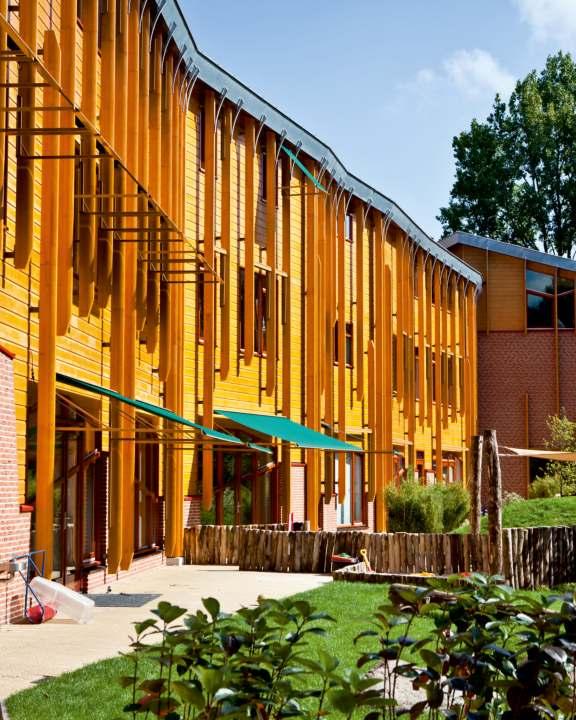
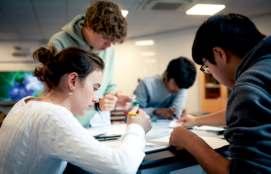
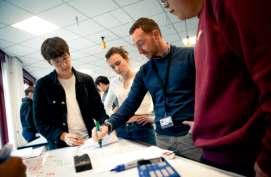
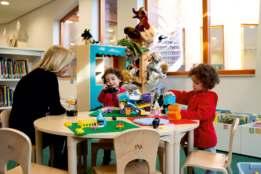
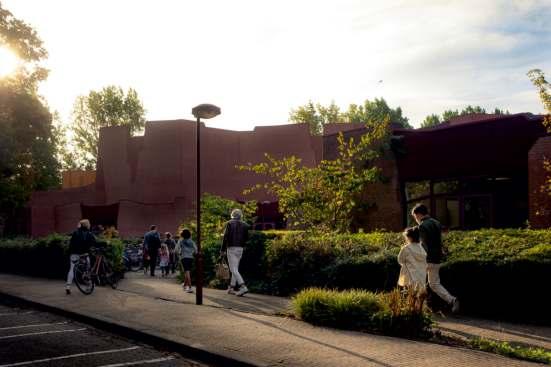
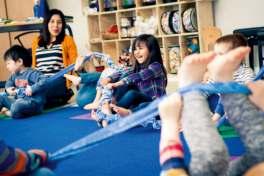
"What I love about ISA is that everyone is always loving and caring and willing to help you when you need it. I also love that the learning strategies the teachers teach me it is easier for everyone to understand and are very efficient and helpful," - Sophia, Grade 5 ISA Student
Middle Years Programme: Learning for Understanding (Grade 6 –Grade 10)
For any educational institute, the middle years dedicated to the development of students are extremely tricky. While most students struggle to find a connection between their learnings and the world, preparing them for the future becomes a tricky and daunting task for educators.
The Middle Years Programme at the International School of Amsterdam is a curated, well-balanced system that allows the students to learn from the world around them and make sense of everything that they are learning.
MYP at ISA is intertwined with the IB curriculum, which aims to teach the students 'How to Learn' rather than just focusing on academic and bookish knowledge. Taking the students outside the traditional concept of learning in isolation, the programme aims to scrutinize and search for an understanding of the real world, giving them many opportunities to grow and strive for global understanding.
Like the themes that were instilled for the Primary Years Programme, a similar learning arc has been drawn for these Middle Year Programme students at ISA under the name of 'Disciplines' These disciplines give the budding minds of the future a streamlined understanding of culture, history, and academic learning.
Moreover, the disciplines also change as the students move ahead with their academic years.
The subject disciplines set by ISA are:
Ÿ Language acquisition
Ÿ Language and Literature
Ÿ Individuals and societies
Ÿ Sciences
Ÿ Mathematics
Ÿ Arts
Ÿ Physical and health education
Ÿ Design.
"In class we learn to find our own voice. This means that our teachers encourage us to share our thoughts and viewpoints on different matters. This allowed me to hear other students' opinions and helped me form my own ideas on the subject. My advice 'to new students' would be to not be afraid to ask for help. The MYP system can be a bit confusing regarding the different criteria for grading in each test or even the different types of tests. It is especially difficult in the beginning, but it does get much easier quite fast, and you shouldn’t be ashamed or afraid to ask your peers or teachers about the MYP system," - Emma, Grade 8 ISA Student.
Diploma Programme: Making of Global Citizens (Grade 11 and Grade 12)
After formal primary education, the students are pretty aware of everything that is present around them. Though the education does not stop after the completion of the Middle Years Programme, it is just the stepping stone to more rigorous and specialized education.
The Diploma Programme was the first programme developed by the International Baccalaureate and has
been offered at the International School of Amsterdam since 1980.
Like every other programme offered at ISA, this DP is also well balanced and collectively aims to broaden the understanding of 'International Understanding' while also preparing students for university.
The DP has been found to be an excellent foundation for preparing students to deal with real-world problems like workload, growing independence, and time management challenges. The success of this programme has been successfully reflected in research demonstrated by IB Diploma graduates who have shown consistent persistence in completing the third-level courses.
The DP is a qualification that is recognized and respected by institutions worldwide. Studies conducted by the IB have found acceptance rates to universities in the US and UK to be significantly higher amongst DP students than non-DP students. IB Diploma Programme (DP) students have a 57 percent greater likelihood of attending one of the top twenty UK universities than students who study traditional A Levels and had a higher acceptance rate to all twenty of the most popular American universities amongst survey respondents.
"The Diploma Programme at ISA was an invaluable experience which taught me how to manage my time and to succeed in activities beyond my comfort zone. I'm really grateful for the ISA DP teachers who made the learning fun and interactive and who gave me the opportunity to develop as a learner and as an individual. Thank you, ISA!"
- Zosia, ISA Alumna.

IIn an era of rising globalization and cultural diversity, international student mobility (ISM) is recognized as a crucial educational tool for raising students' capacity for multilingualism and their (global) employment market prospects. And as per current statistics, the students are actively involved in ISM, which is not surprising (DAAD and DZHW 2019).
It is becoming more and more crucial to be able to deal with cultural differences in the context of the mentioned trends of globalization and cultural diversification. Cross-cultural adaptability, intercultural sensitivity, and intercultural adjustment potential (IAP) are just a few of the constructs that have been used to describe personality traits and skills that are important for mastering cross-cultural interactions and fitting into professional life in a multicultural context.

Considering that the term has been formed with reference to scientific and applied contexts, to employ multicultural effectiveness as a conceptual framework. Additionally, it offers a vast and diverse umbrella notion that encompasses several more specialized features.
With the help of the international curriculum, the students will learn all the factors and become culturally diverse, which will assist them in adapting to the diverse culture of the organization. The involvement of international students enhances the country's host culture and has many other advantages for the country.
It has been demonstrated that participating in an international cultural exchange boosts students' chances of finding employment and aids in developing job-related abilities. Employers prioritize traits like flexibility, cultural sensitivity, tolerance, and so-called ' transversal talents.'
In order to promote tolerance and knowledge of diverse cultures, international student exchanges acquired popularity in the 1960s. Some parents may find it unsettling to consider sending their college-aged child to study or engage in cultural exchange in a foreign nation.
However, more and more parents are beginning to recognize the advantages of sending their children overseas to study or for cultural exchange. A 2017 HSBC poll found that 42 percent of parents would consider sending their children overseas for education or an exchange program, up significantly from the 35 percent seen in 2016.
Many reputable institutions and schools today emphasize the value of cross-cultural interactions, global exposure, and global viewpoints. It will benefit the current generation to converse with people from different cultures globally because the world is becoming more multicultural and interconnected.
Considering the fact the international education also has many other advantages mentioned ahead-
Ÿ Bridges Diverse Groups
The melting pot that emerges from global education. Participants learn that many things unite all of us. The exchange of cultures also enables us to see that regardless of one's background, we are all just trying to make sense of life. It is crucial that one can come about the awareness because it allows us to start moving toward unification by accepting everyone as what they are—humans.
Sharing cultures makes one more accepting and tolerant of innovation. Therefore, people can see the advantages of cultural exchange since it provides the chance to learn about various cultures, which broadens our horizons and fosters empathy for people with different customs and cultural backgrounds. It also helps one to understand their culture better.

Living independently, traveling, and juggling everyday and academic responsibilities are just a few of the lifestyle changes that come with studying and living abroad.
An individual may become more adaptive and flexible as a result of all
of these kinds of experiences.
International education is the first step toward understanding the magnificence of cultural diversity and ultimately being a global citizen.
Every country has its unique system for preparing learners. While studying abroad, students from a given nation are exposed to different teaching methods, which they are more likely to bring back to their own country and share with their classmates. Thus, the exposure benefits their own learning and that of their home schoolmates.
Nothing compares to living on your own, abroad, in a different country, away from home and your parent's watchful eye, and for your own personal development. Improved selfesteem and confidence will result from the experience. Additionally, it will strengthen the students' capacity for autonomous thought and decisionmaking as well as their capacity to comprehend and appreciate various cultures and points of view. Students abroad, even for a semester or two, will develop a global perspective.
Conclusion
Many student exchange programs mandate that participants stay with a local family in the host nation. Students become global citizens as a result of this, which aids in their understanding of and appreciation for the host nation's culture and way of life. If they ever choose to work or live overseas, having had the experience of adjusting to a new culture will be helpful. Additionally, students can develop lifelong relationships with people they live so close to and who have shown them kindness and hospitality.

What is the way of life that humans have been learning from the very beginning of humanity? Change. An inevitable crossing of the free will of humans, and for centuries, this species have evolved to be some of the greatest species ever to walk the face of the earth.
Scaling the timeline of humanity's excellence in ordinance with change, humans have always been preparing and changing the world themselves. And to bring the great initiative to reality, the ideas are being incepted in the minds at a very young age through the effective, particular and personalized way of learning.
Schooling and the education system are nothing but the act of passing on knowledge from one generation to another. And witnessing this act and depicting human nature from it, Rumi once said,
"Yesterday, I was clever, so I wanted to change the world. Today I am wise, so I am changing myself."
Understanding this ideology and its deep intricacies of a unique and personalized style of learning, The
Knowledge Review ventured out to find some of the most efficient and trusted schools in the Netherlands.
And crossing its path with one such school, we came across United World CollegeMaastricht. The school is a renowned international school in Holland for its exceptional personalized learning style, which is even recognized by trusted global academic curriculums and institution boards.
Further, in an exclusive interactive session with the Head of College at the UWC Maastricht, Lodewijk van
Oord describes the school's story and how it impacts students, society and the world.
So, let's dive deep into the impactful story of UWC Maastricht and its unique personalized academic learning style!
United World CollegeMaastricht, in the Netherlands, is one of the 18 UWC schools worldwide. The school organization's words for bringing the world together with education and making the world a sustainable place of culture and peace.
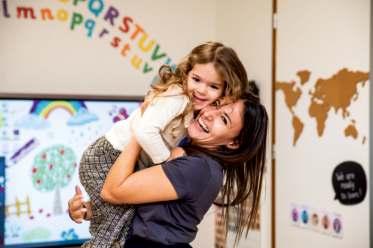
Initiating this at the very base of UWC Maastricht is driven by values that allow the student to flourish and excel physically, intellectually, emotionally, and ethically.
UWC Maastricht is on the noble mission to bring together young people from all walks of life to work together towards peace and a sustainable future.
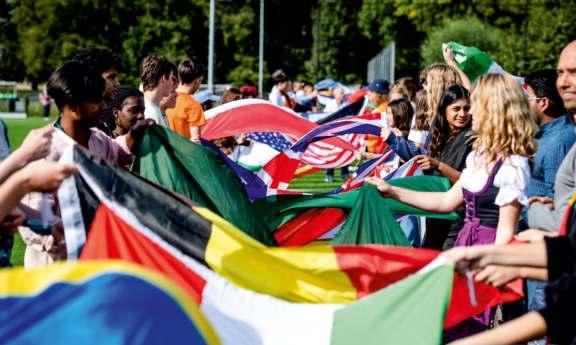
By choosing education as its tool, the school offers students a personalized curriculum that allows them to excel in their abilities to the fullest. Elaborating on how the school achieves that, Lodewijk van Oord says, "We offer a state-of-the-art international education for students from age 4 in our primary school until age 19 in our International Baccalaureate Career and Diploma Programme in secondary school. At the moment, we host over 950 students of more than 100 different nationalities. At UWC Maastricht, we equip them
with the attitudes, skills and knowledge to live a meaningful and flourishing life."
Moreover, the UWC's academic education experience has always been about knowing and acting. Adding further to this vision, Lodewijk says, "We nurture an understanding of the world and its major challenges and help students discover how they can serve others and make a positive contribution to society."
World Class International Education
UWC Maastricht offers the
International Baccalaureate (IB), a widely renowned international education program known for developing inquiring, knowledgeable, confident and caring society.
Lodewijk highlighting the advantages that come with IB, says, "It empowers school-aged students to take ownership in their own learning and help them develop future-ready skills to make a difference and thrive in a world that changes fast."
"On top of this, our school is driven by the UWC values, in order for young people to flourish physically, intellectually, emotionally and ethically and become caring global citizens," Lodewijk further adds.
Being a trendsetter in the global education scenario, UWC Maastricht has started a unique program named Beyond the Classrooms, focusing on the holistic growth of the students.
At UWC Maastricht, social responsibility is part of the students' DNA. Locally, nationally and globally.
Briefly shadowing the program intricacies at the UWC Maastricht, Lodewijk says, "These programmes allow students to choose courses with a focus on personal, academic and professional skills development and relevant service and work-related experiences."

Further highlighting the co- and extracurricular activities that further adds to the school's and student's holistic development, Lodewijk asserts, "UWC Maastricht offers many co- and extra-curricular programmes. From sports, creativity clubs, music lessons and services to student-led initiatives. Students develop leadership and collaboration skills and participate in meaningful activities throughout the school and the Maastricht community."
Being a renowned international school, UWC Maastricht is proud of its student-led initiatives for bringing society with noble initiatives like conferences, festivals, and musicals. During the organization, implementation and evaluation, students learn how to work in multicultural teams outside of the academic setting, train in extra-curricular skills, gain new knowledge of different subjects and provide content to the whole school community and beyond.
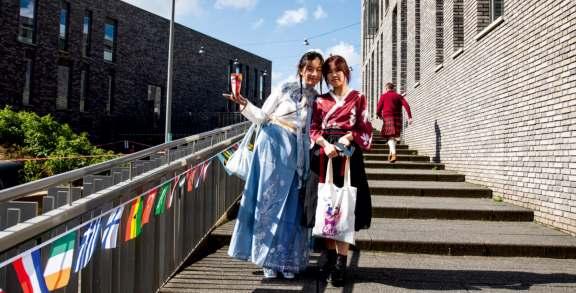
Understanding the impact the school's initiatives have on society and the students,
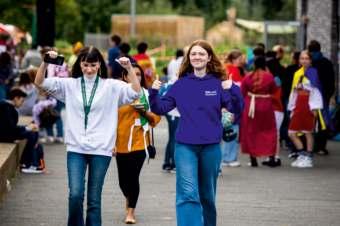
Lodewijk exemplifies, "They also get the chance to meet experts, workshop facilitators, organizations and guest speakers from all over the world. Furthermore, students will develop contacts with other local and international schools which are participating in the events."

Further adding to that thought, Lodewijk says, "Some examples of these student-led initiatives are conferences such as International Peace Conference, Youth Environmental Sustainability Conference or Sciences Conference. But also, an art festival, culture weeks, a musical and TEDxYouth Maastricht are part of them."
UWC Maastricht believes education is the driving force that can change the world. And as an inclusive, personalized international school, it has kept its door open for every student worldwide. Today, the student at UWC
Maastricht represents a wide variety of religions, political perspectives and cultures, from royals to refugees.
Further explaining how the schools draw the growth arc of the world, Lodewijk says, "We equip students with the attitude, skills and knowledge to live a meaningful and flourishing life by making a positive contribution to society. All students together spend more than 40,000 hours a year doing voluntary work in Maastricht and its region. Cooking for the elderly, handing out food to homeless people,
picking litter, being a buddy to disabled children."
Elaborating on the future roadmap of the school, Lodewijk further says, "At the same time, they identify challenges within their home countries. Poor living conditions in refugee camps in Western Sahara, lack education for orphans in Laos or discrimination against LGBTQ+ communities worldwide. The overarching aim of our education is to nurture the skills and attitudes needed to be an active participants in society. We encourage students to identify problems and injustices wherever they exist and to focus on the mechanisms through which positive change can be achieved."
"At UWC Maastricht, social responsibility is part of the students' DNA. Locally, nationally and globally. This way, we believe, not only our school is going forward, but also our shared world!" Lodewijk concludes.
At UWC Maastricht, we equip youngsters with the attitudes, skills and knowledge to live a meaningful and flourishing life.

TThe spoken word and language
are among the most direct forms of communication. It's how people establish relationships with others and ensure their wants are addressed. So, it seems you can feel disoriented, uncertain, or anxious when you don't speak the language well. The key is cultivating a strong self-belief and treating yourself with kindness as you pick up the language.

And for most foreigners living in new nations, it can be challenging to deal with feelings of alienation, cultural differences, foreign currencies, and being disconnected from their support systems. When you first arrive, you might need time to adjust to the prominent Dutch culture.
The Netherlands is still renowned for being a multicultural country. The shift from when everything was still 'new and thrilling' to when it became normal was made simpler by the Dutch people's reasonability and readiness to assist.
The ability to communicate effectively in their native language is the single most crucial factor determining an international student's success in school because it affects not only their psychological well-being and ability to succeed but also their ability to interact socially with other students.
The Netherlands is not an expensive country for international students. It offers education at an affordable price. Because most universities in the country provide Non-English courses to students and international students, look for English language courses as English is the most commonly understandable language worldwide.
And since the universities of the Netherlands started providing education in the English language, the number of admissions has been enhanced, and the country has become one of the best international countries for international students who want to study abroad.
And those who are looking to study abroad should thrive the following reasons to study in the Netherlands;
The Netherlands is a popular destination for international students from around the world. The majority of the 157 nations represented by international students in 2014–15 were Germany, China, Belgium, Italy, and Spain. International student associations are common in Dutch universities and support students throughout their careers.
The Netherlands is the only NonAnglophone nation, with roughly 95 percent of the populace speaking English. For international students, this makes a living, studying, and working in the Netherlands incredibly convenient, comfortable, and exciting. The Netherlands is also a relatively liberal and open country that encourages everyone to express themselves. This is strongly recommended throughout your academic career.
Compared to other English-speaking nations like the UK or the US, the cost of studying in the Netherlands is not that high. Tuition costs are relatively affordable in the Netherlands, and higher education is governmentfunded. Studying in the Netherlands will provide excellent value for your money due to the nation's renowned educational standards and relatively inexpensive cost of living. Depending on the school, annual tuition expenses for a degree program or course start at
about €1,900 for EU students and €6,000 for non-EU students.
Additionally, if students want to work in addition to their studies, they can claim these costs and receive a tax refund. Quite a cool thing! In addition, many Dutch institutions provide grants and scholarships that can either entirely or partially offset the cost of study programs' tuition.
The Dutch educational system is of the highest calibre, and Dutch institutions are renowned worldwide for their wellorganized, cutting-edge curricula and infrastructure. International students in the Netherlands can quickly meet Dutch people and other international students because the teaching methodology emphasizes teamwork.
Dutch universities highly value excellent interpersonal relationships between professors and students. Small groups of 15 to 30 students typically attend tutorials and lectures. Most of your coursework will involve group projects, which will help students to improve their collaborative and teamwork skills and their academic abilities. The degree programs at Dutch institutions are quite practical in nature. Universities emphasize meaningful real-world experience and frequently collaborate with domestic and foreign businesses.
In addition to general universities, there are also applied science universities that offer more specialized education. An applied sciences university might appeal more to students who like to learn about real-
world problems. These give greater attention to actual experiences and less attention to theories and studies.
The country's living is relatively inexpensive compared to other regions of western Europe. Students may require €800–€1,000 every month, and they can also work two part-time jobs and take finance classes to pay their expenses. Student OV-Chipkaarts with free weekday or weekend public transportation is available to EU citizens who work 32 hours per month and qualify for a €265 subsidy.
Several helpful websites can help students find dormitories. One can start looking for housing as soon as possible because it is a great need.
Several bars, restaurants, museums, and theatres offer student discounts. Cycling is a simple way to move around town. It is not only a classic Dutch mode of transportation but also one that is reasonably priced. To receive various additional savings and privileges, one should unquestionably request an ISIC student card.
The Netherlands has a long history of modern foreign language education. Many Dutch people achieved the goal of speaking their mother tongue plus two additional MFLs even before the European Council started to call for it. However, the situation now is the result of utilitarian political decisions that have an impact on all levels of schooling as well as the growing Englishization of public and private life.



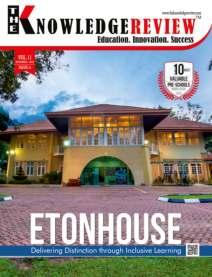
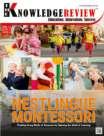
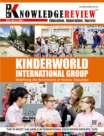
The internet and technology have made humans communicate beyond borders effectively and intrudingly. Further, deepening the roots of holistic education in the modern education paradigm, internationalism and globalization are picking up the pace to complete the youth's learning arc.
Surfing on the tides of internationalism, globalization and digitalization, the education requirement of the contemporary world is adding new features to its hat, allowing young minds a well-curated approach to holistic education.
The academic needs of today's world have significantly changed from 'Education for Survival' to 'Education for the Future.' Parents all around the world are looking for an education system that grooms students in a holistic international environment.
The well-synchronized education approach for preparing students for the future has become the need of the hour of educators, educational institutions, parents and students. Moreover, international and bilingual education has been recognized as the key component for the holistic development of students.
With a conscience and well-curated vision of instilling international and futuristic educational pedagogies in the academic curriculum of the youth of the Netherlands is Winford Bilingual Primary School.
The school is a holistic primary school based on the principles of international education beyond borders. The school houses some of the finest primary educators and is a trendsetting institution in the country.
In an exclusive conversation with The Knowledge Review, Joy Otto, the Program Director of the Winford Bilingual Primary School's department, shares the school's eclectic journey and unique pedagogies that it has instilled for the smooth flow of quality education at the institution.
The Inception of an Immersive Bilingual Primary School Winford Bilingual Primary School, Amsterdam, was established in 2019 by the Winford School Group, which is a trendsetting and one of the most prestigious educational groups in the country. The group has been running various Dutch primary and secondary education programs across the Netherlands. The Winford Bilingual was brought under the group's flagship as a fully immersive dual language school.
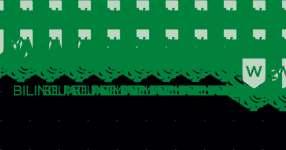
In a couple of years of its establishment, the school has spread its wings wide and broad, expanding its reach to other prominent cities in Holland as another school was opened in Haarlem in 2021, and the third one at Hague is expected to be functional by 2023.



Winford Education Group has been associated with curating a unique curriculum for various schools in the Dutch National Curriculum and the UK National Curriculum. Winford Bilingual Primary School, the only total immersion school in the Netherlands, has created its own curriculum for the school, carefully sculpting from the riches of the Dutch Curriculum with the international curriculum standards linking closely with the International Primary Curriculum (IPC). Talking about this in particular, Joy Otto says, "Our well-rounded approach, along with having a Dutch and English teacher in each classroom, means that the children are completely immersed in English and Dutch throughout every school day."
Furthermore, the philosophy of Winford Bilingual Primary School is not officially a Montessori School, but the Montessori School's philosophy inspires the school management. The school's teaching and learning approach has been heavily drawn from it. Expressing her views of the well-curated primary school philosophy, Joy Otto says, "Our classrooms are designed to encourage all our students to be independent and to move at their own pace as much as possible. In their space, we try to encourage a love of learning in each child and a curiosity about the world around them that we hope will last for the rest of their lives."
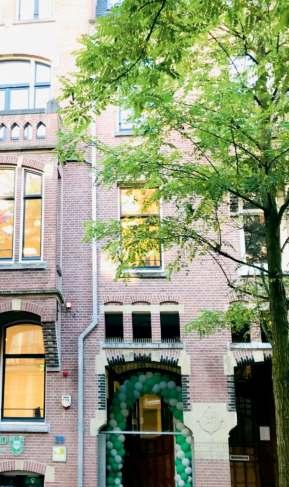
We believe that children should be respected as individuals and allowed to cultivate their innate desire to learn.Joy Program Director,
The infrastructure and the classrooms at the Winford Bilingual Primary School reflect the global mindset within the Dutch community. Expressing her views about that, Joy Otto says, "We believe that children learn best when they are given opportunities for success through interaction with their peers and the adults around them. We strive to promote a sense of community through mixed age groups in each classroom, where children work, play and eat meals together. We serve both international and Dutch students to make our school not only bilingual in language but culturally immersive."
"We believe that children should be respected as individuals and allowed to cultivate their innate desire to learn. Our goal is to provide the highest quality dual language education within a global setting, which prepares your child for life beyond the primary classroom," she further added.
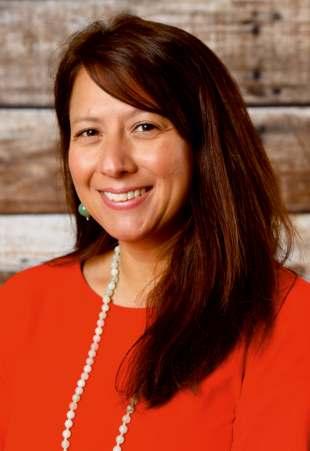
Joy Otto is the Program Director at the Winford Bilingual Primary School. Over the course of her long 22-yearold career, she has served the education system in various roles as an educator, classroom teacher, language therapist and education consultant. She has uniquely curated the curricula of Winford Bilingual School with the thoughtful alignment of the national
standards in both the Dutch and English curricula.
The academic and extra-curricular curriculum curated at the Winford Bilingual Primary School is a unique combination of three of the most recognized curriculums. Further, the combination is so well curated that it offers the young budding minds a wellrounded, holistic learning program.
Describing their unique curriculum curation, Joy Otto says, "We focus on the academics, as well as social, health and emotional. We always review our curricula and the programmes we use to make sure we are offering the best educational methods for our students."
"We offer multi-aged and multi-level classrooms, which means we can teach to each child's abilities," she further adds.
Ever since starting the academic venture in the education space, the school has appointed two teachers per class to maintain an easy and smooth flow of knowledge and academic excellence. Apart from that, the school has always emphasized keeping the class size small, which will result in a high ratio of teachers to students. This way, all the students at the school get the opportunity to be challenged and excel in academic and non-academic during the schooling years.
The personalized learning model is also indulged and included in the extracurricular activities at the school. Highlighting the extra and co-
We offer multi-aged and multi-level classrooms, which means we can teach to each child's abilities.
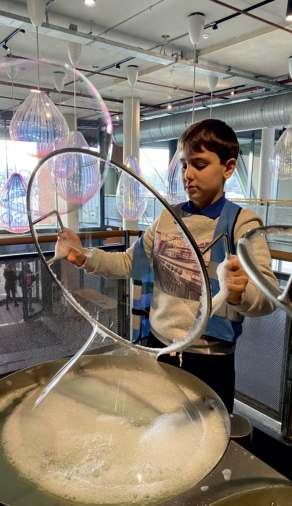
curricular activities that aim for the overall development of students, Haarlem Director, Alesi Haan says, "Throughout the school year, we plan activities that are divided between lower and upper school, and other activities where the whole school participates at the same time. Examples: Halloween, 101 Days of School, Spirit Week, Sint and Christmas, End of Year Picnic, Sports Day. Our children and teachers are always excited to celebrate events with us. As we are a boutique school, all the children know each other, and we have a strong community spirit."
Amidst the increasing globalization and internationalism in all sectors, the school understand incepting strong academic values in their students. The school holistically grooms the students, preparing them to be global citizens and the future of tomorrow.

Joy Otto expresses how the school prepares its students for their holistic future, saying, "Our children can have the option of a local Dutch Secondary School or an Englishspeaking Secondary School as we follow the Dutch and UK National Curricula. Our students do the required annual testing by the Dutch government for the Dutch curriculum. We also do assessments for the UK curriculum. There ensures that the parents know the education level of their children and what Secondary Schools would be the best option. We also have additional 1-1language coaching for any students who arrive later at our program."
After only being a young school in the education domain space and the early success that the school has achieved, the school management is confident about its future plans. Winford CEO Marc Peters is delighted with Winford's expansion into bilingual education. "The long-held dream of offering bilingual education is catching on, with a concept that is close to our hearts. With this we offer children from the age of four the opportunity to immerse themselves in bilingual education and the associated cultural experience."
Briefly explaining its future plans, the marketing manager Jenni Iyoyo says, "Our vision is always to offer boutiquestyle schools where we can focus on every child and keep a strong community spirit. In the future, we would like to open more bilingual schools in other cities around the Netherlands."

